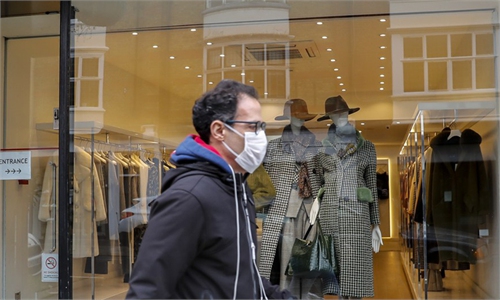A European research consortium said on Monday it had carried out the most complex supercomputing experiment ever conducted on the new coronavirus, during a 60-hour simulation aimed at modeling the effect of potential new COVID-19 drugs.

It tested 70 billion molecules, evaluating 1 trillion interactions.
"We reached the new goal of 5 million simulated molecules per second. As a comparison, ours is more than 300 times bigger and 500 times faster than the one carried out in the US last June," said Andrea Beccari, head scientist of the project.
As drugs makers have raced to develop vaccines for COVID-19, researchers have turned to advanced supercomputers to crunch enormous quantities of data on the virus, which was unknown a year ago and which has taken more than 1.3 million lives since it first emerged in December 2019.
The Excalate4Cov platform led by Italy's Dompé Farmaceutici is backed by the European Commission and coordinates supercomputing centers in Italy, Germany and Spain with pharmaceutical companies and research centers, including the University of Louvain, Fraunhofer Institut, Politecnico di Milano and Spallanzani Hospital.
The operation last weekend was carried out on computers operating at 81 Petaflops (one Petaflop is a unit of computing speed equal to one thousand trillion operations a second) with virtual screening software created and optimized by Polytechnic.
A first phase of the project ended with the identification of a generic osteoporosis drug that researchers hope may also help reduce COVID-19 symptoms, which got the go-ahead for human clinical trials in October by Italy's main medicines regulator.

A restaurant is closed before curfew hours amid a spike in new coronavirus infections in Milan, Italy on October 22. Over 21.7 million Italians, making up over one-third of the country's population, have been placed under curfew amid a spike in new coronavirus infections, which numbered 13,860 on Thursday, officials said. Photo: Xinhua
The operation, overseen by the European Commission-backed Excalate4Cov platform, harnessed supercomputers of Italy's Cineca computing consortium and energy giant ENI.It tested 70 billion molecules, evaluating 1 trillion interactions.
"We reached the new goal of 5 million simulated molecules per second. As a comparison, ours is more than 300 times bigger and 500 times faster than the one carried out in the US last June," said Andrea Beccari, head scientist of the project.
As drugs makers have raced to develop vaccines for COVID-19, researchers have turned to advanced supercomputers to crunch enormous quantities of data on the virus, which was unknown a year ago and which has taken more than 1.3 million lives since it first emerged in December 2019.
The Excalate4Cov platform led by Italy's Dompé Farmaceutici is backed by the European Commission and coordinates supercomputing centers in Italy, Germany and Spain with pharmaceutical companies and research centers, including the University of Louvain, Fraunhofer Institut, Politecnico di Milano and Spallanzani Hospital.
The operation last weekend was carried out on computers operating at 81 Petaflops (one Petaflop is a unit of computing speed equal to one thousand trillion operations a second) with virtual screening software created and optimized by Polytechnic.
A first phase of the project ended with the identification of a generic osteoporosis drug that researchers hope may also help reduce COVID-19 symptoms, which got the go-ahead for human clinical trials in October by Italy's main medicines regulator.




